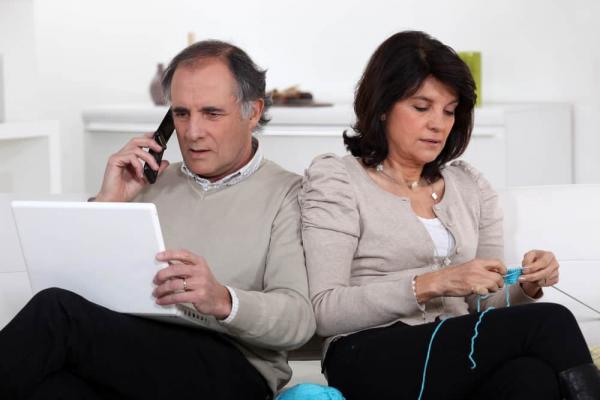
When the sweet aroma of love goes sour, and the bitter aftertaste just won't go away, you're not over the relationship. If you allow the feelings of devastation, anger and betrayal fester within you, you may find yourself spiraling into hate. But know that this hate is not the opposite of the love you once felt. Hate is an intense emotion that illustrates a very alive and well connection to another person. You are still bonded to this person, care what happens to him, good or bad, and you are preoccupied with things that are beyond your control. That is, the behavior, decisions and feelings of another.
The opposite of love is not hate. The opposite of love is indifference. And in particular, the opposite of romantic love is a general sense of apathy toward the other person and the relationship. Or on a brighter note, peace and comfort in the dissolution of the love and relationship. So how do you know if you're heading toward the end of the love road?
The following describe five stages of indifference:
Cruise control
After a long run, like many couples, you may put your relationship on a sort of "cruise control."� Letting the schedules, daily commitments, parenting duties and economic responsibilities take precedence over the health and welfare of the relationship. Then one day you notice you and your sweetheart simply don't have much to say to each other. Everything's planned, itemized and on task. But something feels off in the calm, and the silence is deafening. What is not being planned, itemized and delegated are the privileges (or responsibilities depending on how you frame them) of keeping the relationship on task. Everything on your list is checked off, but your relationship has been left off the list.
Devolution
When the warm-and-fuzzies of puppy love fade, it's best to have a solid friendship underneath all that love and love making. But once the romance dwindles and lovers become friends, and nothing more, you could be heading down a slippery slope. When your spouse becomes your roommate, and you discuss or do anything that doesn't revolve around your loving relationship, you've likely hit the skids and bounced off the guard rail into indifference. You have now entered the infamous "friend zone."�
Detaching
Disconnecting from your partner amidst the chaos of life can occur in natural cycles. But if you don't take care and make an effort to reconnect, you may end up detaching permanently. If you or your partner has detached, it is very possible you can still care deeply for them and the relationship. However, you may not feel committed enough to the well-being of the relationship or each other to work at it.
Passive insistence
Not fighting for your marriage shows a distinct indifference to its survival. You may not leave, but refusing to go to marriage counseling, individual therapy, or treatment for abusive or addictive behaviors, if applicable, can be just as devastating. Being passive means not doing the things that would keep your partner in the relationship. It is also not doing those things that will immediately end the relationship either. This inaction forces the other person to make the ultimate decision to end the relationship.
Well-wishing
The final and most peaceful stage of indifference is simply hoping your ex-spouse moves on and lives well. You want him or her to progress and find another great relationship to be happy and healthy in. You may even want to maintain a friendship and share in your new adventures together, as platonic mates.
A close friend of mine aptly named the too-comfortable, non-passionate phase of a relationship "sweatpants syndrome."� No more nice clothes, no more shaving, no more primping and preening. It's just the two of you. And that's great! But she stated it was important to keep in mind what attracted her to her former-beau in the first place, and vice versa. Now she maintains her appearance, changing it up every once in a while, and keeps herself healthy. She now knows letting herself go in the comfort zone of a relationship means she might be letting go of the relationship soon too.
The longer you travel at a certain speed in a vehicle, the more desensitized you become to it until you suddenly need to hit the breaks or round a corner. Relationships don't belong on cruise control. Check in with your partner regularly and stay on course. If you start to swerve, correct the direction before you find yourselves in a real emergency. Pull over to a rest stop, stretch your legs, clean out the garbage, and get back on the open road to loveville. And remember, little things every day make life and love happy and abundant.

